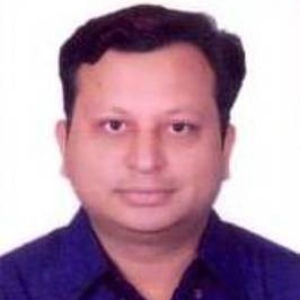Title : Bio-assisted Synthesis of Bi-Metallic Nanoparticles: Challenges & Future Prospects
Abstract:
Bimetallic nanoparticles comprise two definite metals, having characteristic amalgamation and chemical chronology that give them unique geometry and specific functions. Bi-metallic nanoparticles also referred as doped nanoparticles show increased solubility with reduced particle size thereby surpassing monometallic nanoparticles in functionality as these characteristics improve their bio-sensing, catalytic, anti-bacterial and wound-healing properties. These nanoparticles can be synthesized by various ways such as physical, chemical or biological processes. Among all, biological methods are considered to be most suitable as they are environment friendly and economically viable. Bio-assisted synthesis of nanoparticles also called ‘Green synthesis’ is achieved though plants and microbes, be it gymnosperms or angiosperms, and microbes can be bacteria or fungi and yeast or even viruses. In this study, we focused on usage of medicinal plants as they contain bio-active compounds like several phytochemicals which hold antibacterial traits that in turn aid in enhancing antibacterial aspect of bi-metallic nanoparticles. Due to this property, bi-metallic nanoparticles are being used as an antibiotic substitute to target particular Microorganisms. Several microorganism associated diseases are a significant reason for constant contaminations and mortality due to multidrug-resistant bacteria which mostly occurs due to biofilm formation by the bacteria. Bio-synthesized nanoparticles have shown potent anti-microbial properties against wound-associated pathogens which cause delay in healing specially in patients with diabetes due to poor replications of immune cells thus, require keen observation and immediate management. All this can be best achieved by bio-assisted bi-metallic nanoparticles which have an additional advantage of reduced toxicity because of doping and use of plant based phytochemicals. We are using several medicinal plant leaves extracts and then synthesized bi-metallic silver doped metal nanoparticles such as silver doped zinc, silver doped copper etc. followed by discerning their anti-microbial, anti-biofilm and wound-healing capabilities against biofilm forming pathogenic bacteria which was isolated from environment and clinical sources. This study can open new doors in field of medicine thereby furnishing new choices in treating ailments by providing bio-assisted doped nanoparticles as wide-spectrum anti-biofilm and wound-healing agents to foster a comprehension for the improvement in nano-based medication formulations.


